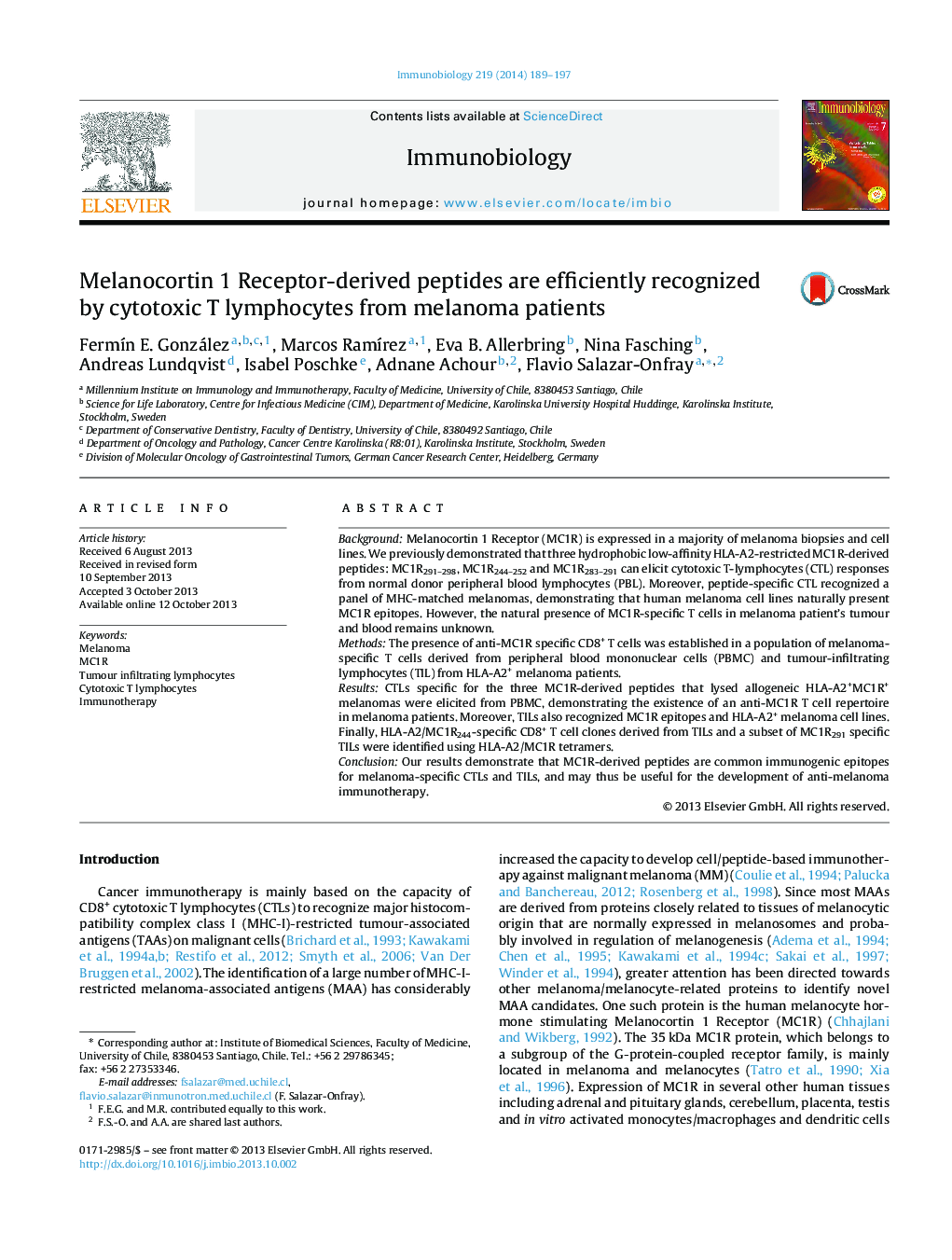| Article ID | Journal | Published Year | Pages | File Type |
|---|---|---|---|---|
| 2183407 | Immunobiology | 2014 | 9 Pages |
BackgroundMelanocortin 1 Receptor (MC1R) is expressed in a majority of melanoma biopsies and cell lines. We previously demonstrated that three hydrophobic low-affinity HLA-A2-restricted MC1R-derived peptides: MC1R291–298, MC1R244–252 and MC1R283–291 can elicit cytotoxic T-lymphocytes (CTL) responses from normal donor peripheral blood lymphocytes (PBL). Moreover, peptide-specific CTL recognized a panel of MHC-matched melanomas, demonstrating that human melanoma cell lines naturally present MC1R epitopes. However, the natural presence of MC1R-specific T cells in melanoma patient's tumour and blood remains unknown.MethodsThe presence of anti-MC1R specific CD8+ T cells was established in a population of melanoma-specific T cells derived from peripheral blood mononuclear cells (PBMC) and tumour-infiltrating lymphocytes (TIL) from HLA-A2+ melanoma patients.ResultsCTLs specific for the three MC1R-derived peptides that lysed allogeneic HLA-A2+MC1R+ melanomas were elicited from PBMC, demonstrating the existence of an anti-MC1R T cell repertoire in melanoma patients. Moreover, TILs also recognized MC1R epitopes and HLA-A2+ melanoma cell lines. Finally, HLA-A2/MC1R244-specific CD8+ T cell clones derived from TILs and a subset of MC1R291 specific TILs were identified using HLA-A2/MC1R tetramers.ConclusionOur results demonstrate that MC1R-derived peptides are common immunogenic epitopes for melanoma-specific CTLs and TILs, and may thus be useful for the development of anti-melanoma immunotherapy.
